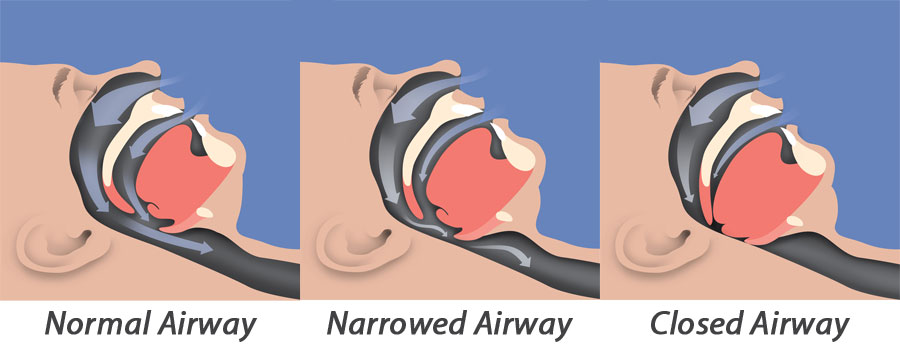
Sleep Apnea Causes and Treatments
Sleep apnea is a sleep disorder characterized by repeated interruptions in breathing during sleep. These interruptions, called apneas, can lead to fragmented sleep and a range of health problems. There are three main types of sleep apnea:
Obstructive Sleep Apnea (OSA): This is the most common type of sleep apnea. It occurs when the muscles at the back of the throat relax excessively, leading to a blockage of the airway. This blockage can cause snoring, gasping, or choking during sleep.
Central Sleep Apnea (CSA): Unlike OSA, CSA is not caused by a physical blockage of the airway. Instead, it occurs when the brain fails to send the appropriate signals to the muscles that control breathing. People with CSA may experience periods of shallow or paused breathing during sleep.
Complex Sleep Apnea Syndrome (Mixed Sleep Apnea): This type of sleep apnea is a combination of both OSA and CSA.
Causes:
Obesity: Excess weight, especially around the neck, can contribute to narrowing of the airway.
Anatomical Factors: Enlarged tonsils, a deviated septum, or a smaller jaw can lead to a narrower airway.
Age: Sleep apnea is more common in older adults.
Gender: Men are more likely to develop sleep apnea than women.
Family History: Genetics can play a role in the development of sleep apnea.
Medical Conditions: Conditions like congestive heart failure, high blood pressure, and diabetes are associated with an increased risk of sleep apnea.
Treatments:
Lifestyle Changes:
Weight loss: Shedding excess weight can reduce the severity of sleep apnea.
Sleeping position: Sleeping on your side instead of your back can help keep the airway open.
Avoiding alcohol and sedatives: These substances can relax the muscles in the throat, exacerbating sleep apnea.
Continuous Positive Airway Pressure (CPAP): A CPAP machine delivers a continuous stream of air through a mask, keeping the airway open during sleep.
Bi-level Positive Airway Pressure (BiPAP): Similar to CPAP, but it adjusts the pressure based on the user's breathing patterns, making it easier to exhale.
Adaptive Servo-Ventilation (ASV): ASV devices adjust the pressure based on the user's breathing patterns, specifically designed for those with central sleep apnea.
Oral Appliances: These devices reposition the jaw and tongue to help keep the airway open.
Surgery: In cases of severe sleep apnea, surgical options might be considered, such as removing excess tissue from the throat or correcting structural abnormalities.
Lifestyle Modifications: Quitting smoking, avoiding alcohol before bedtime, and regular exercise can help manage sleep apnea.
It's important to note that the appropriate treatment will depend on the type and severity of sleep apnea. If you suspect you or someone you know has sleep apnea, it's recommended to consult a medical professional for a proper diagnosis and personalized treatment plan.

